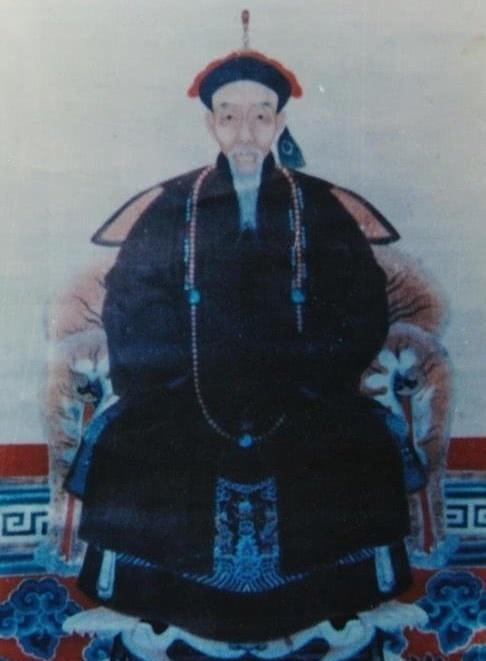During the Daoguang Emperor of the Qing Dynasty, the most important event was the First Opium War. The Opium War began, Guangdong was defeated, and the Daoguang Emperor became angry with the hard-line smoking Lin Zexu. Lin Zexu was dismissed from his post, but still actively prepared for war and opposed peace, and the Daoguang Emperor was angry and charged him to Ili.

In fact, the hard-line anti-smoking faction is not Lin Zexu alone, but Wang Ding and others are the main battle faction, and the surrender faction represented by Mu Zhang'a and Qi Shan is a sworn enemy. Wang Ding played Daoguang many times, bluntly saying, "Don't kill Qi Shan, you can't do anything to the world", and Daoguang was angry. Wang Ding, who was already 74 years old, actually remembered the story of the corpse of the Weiguo Shiyu in the Spring and Autumn Period, hanged himself and died, and his deathbed: "The treaty (cession of Hong Kong) must not be allowed lightly, and the evil case cannot be taken lightly; Mu (Zhang'a) cannot be reneged, and Lin (Xu) must not be abandoned!" ”
Wang Ding (1768-1842), zi ding jiu, was a native of Pucheng, Shaanxi. Wang Ding made up for his life at the age of nineteen, and Qianlong was raised in the fifty-seventh year at the age of twenty-four. In the first year of Jiaqing (1796), he became a jinshi and chose Shu Jishi to participate in the compilation of the records of the Qianlong Emperor. Later, he successively served as a waiter in the ministries of workers, officials, households, ceremonies, and punishments, and "five departments of overlapping residences". He was appointed Minister of War in the fifth year of Daoguang, a position he held for seventeen consecutive years until his death in the twenty-second year of Daoguang (1842).
Wang Ding was a capable official, and after being reused by the imperial court, Wang first went around the four departments of the Gongju Household Punishment and was trained. Wang Ding was known for his honesty as an official. In order to rectify the rule of the officials, he was just and upright, and did not favor personal feelings. He served in the Punishment Department and successively went deep into nine provinces to try more than 30 major suspicious cases, so that those who perverted the law for bribery were punished and unjust, false and wrongly decided cases were rehabilitated. Finally, in the sixth year of Daoguang, he served as the Tobe Shangshu and was appointed minister of military aircraft. As the god of wealth of the country, Wang first solved the problem of salt government. The salt monopoly was originally an important source of tax in the Qing Dynasty, but it has been followed for a long time, but it has become the source of various officials and merchants engaged in private fraud. Wang Ding took a hard hand and first straightened out the northern salt affairs, which greatly increased the tax revenue of the Changlu Salt Farm. Then he swung the large knife at the two Huai salts. Wang Ding joined forces with Tao Shu, the governor of Liangjiang, and Baoxing, a servant of the household department, to alleviate the people's plight, persuaded Daoguang to order the abolition of the Lianghuai Salt Administration, and played a combined fist: "Cut floating fees, reduce nest prices, delete red tape, investigate flood sales, dredge the road, add shore shops, scatter wheel rules, harvest stove salt, etc." "Therefore", Tao Shu was determined to revolutionize, Huai Gang gradually vibrated since then, and the power of Ding was also there. ”
By 1840, history called the First Opium War. Around the war and the issue, the Qing court was divided into two factions, and Wang Dingzi firmly sided with the main battle. Not only did he repeatedly argue with the prime minister Mu Zhang'a, who advocated peace and negotiation, and quarreled with each other, but he also did not hesitate to offend Tianyan several times, and urged the Daoguang Emperor to make up his mind to fight the British to the end. Wang Ding complained to the Daoguang Emperor about the long-term harm to the country and the nation of the country and the nation of the agreement signed by ceding Hong Kong, and angrily rebuked Mu Zhang'a, the leader of the compromise faction and the chief military minister, as the contemporary Qin Juniper and Yan Song. Since the Daoguang Emperor's decision to compromise and seek peace had already been decided, Wang Ding, in the event that both the court and the crying advice failed, resolved to "return to heaven with the corpse advice". Despite all the efforts, it was still fruitless. On the night of June 8, 1842, Huai Was worried about the "treaty must not be allowed lightly, bad examples must not be taken lightly, Mu must not be renunciated, Lin must not abandon it", hanged himself in the Yuanmingyuan at the age of 74.
Lin Zexu was dismissed, but still actively prepared for war and opposed peace, and the Daoguang Emperor was angry and charged him with Ili. Lin Zexu, who was far away in Xinjiang, heard this and was full of grief, and wrote down "a thousand tears of sadness and confidant, sprinkled on the wind of the Pingsha curtain." In 1864, 22 years after the Opium War, Lin Zexu served as the governor of Shaanxi and mourned Wang Ding for three months.